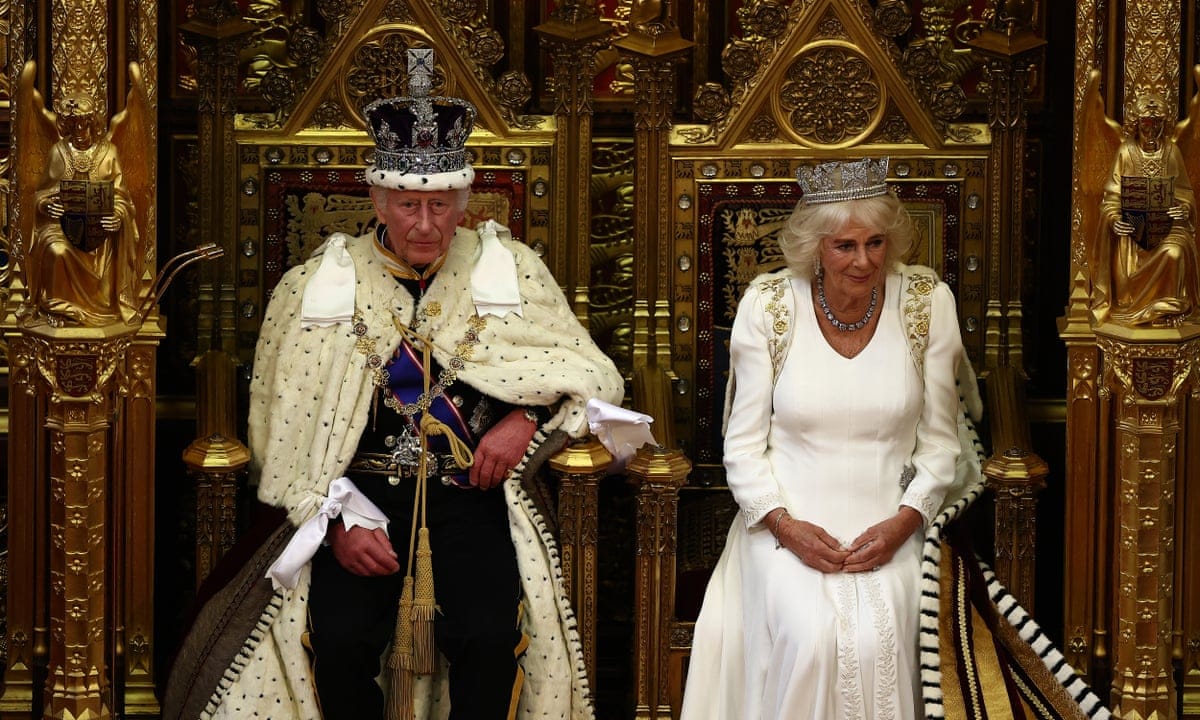Keir Starmer has presented an agenda that promises to counteract populist ideologies through a series of reforms aimed at improving people's lives, including enhanced rights at work, reduced energy costs, and secure housing opportunities. The Prime Minister outlined 40 proposed bills in his address, which includes measures for economic growth like the planning and infrastructure bill to expedite crucial building projects.
The employment bill marks a commitment to better working conditions by prohibiting unfair contracts and simplifying union recognition procedures. Additional legislation is expected, such as revitalizing public ownership of rail services and empowering local authorities over bus routes and schedules. The economic responsibility bill mandates consultations with the Office for Budget Responsibility before significant tax adjustments are made—a move that could challenge opposition parties' previous policy decisions.
The Great British Energy initiative, fulfilling a campaign promise, will officially be an energy production company as opposed to merely an investment entity. The government also plans an English devolution bill designed to decentralize decision-making power at the local level for transportation, education, and employment issues. Moreover, new public health laws are set to introduce measures against smoking and advertising harmful food products while introducing regulations targeting disruptive behavior on residential streets.
Tragic events have spurred legislative changes such as Awaab's law for landlord responsibilities in hazardous housing conditions, Martyn's Law to enhance security measures at public venues, and a requirement of transparency from government bodies through the Hillsborough Act. Starmer emphasized that these efforts will lay down the foundation for a long-lasting transformation focused on dedicated service rather than political maneuvering.
Read next

"Scottish Greens' new leaders push for universal income and free bus fares"
Scottish Greens' new leaders, Ross Greer and Gillian Mackay, have pledged to advocate for a universal income, free bus travel, and increased taxes on high earners following a subdued leadership race.
Greer and Mackay, previously backbench MSPs at Holyrood, were elected co-conveners of the Scottish Greens with a notably

"White House faces criticism for appointing Robert F Kennedy Jr ally to lead CDC – latest updates"
Enable JavaScript to view this feature
Patty Murray, a senator from Washington, has urged the Trump administration to offer "swift clarification" regarding reports that two firefighters were taken into custody by border agents while responding to a wildfire in the state.
Federal immigration officials carried out an operation

"Liz Truss supports Trump’s Fed critiques, predicts central banks face backlash"
Liz Truss Supports Criticism of Central Bank Independence, Echoing Trump’s Stanc
Liz Truss, the shortest-serving British prime minister, has expressed support for Donald Trump’s criticism of the US Federal Reserve’s independence. Truss, who was forced out of office following turmoil in financial markets, suggested that major central

